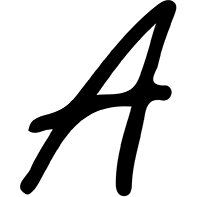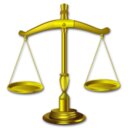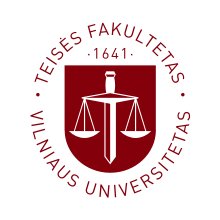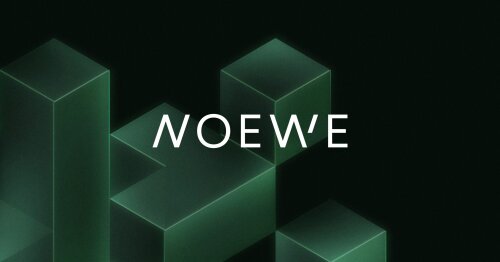Best Whistleblower & Qui Tam Lawyers in Vilnius
Share your needs with us, get contacted by law firms.
Free. Takes 2 min.
List of the best lawyers in Vilnius, Republic of Lithuania
About Whistleblower & Qui Tam Law in Vilnius, Republic of Lithuania
Whistleblower and Qui Tam laws are designed to protect individuals who report illegal activities committed by organizations or individuals. In Vilnius, the capital of Lithuania, these laws have been developed in alignment with European Union directives to safeguard whistleblowers from retaliation and to encourage the disclosure of misconduct. Qui Tam, a term derived from the Latin phrase that can be translated as "he who sues for the king as well as for himself," refers to a legal provision that allows private individuals to file a lawsuit on behalf of the government against a party engaged in fraudulent activities. Although not as widespread as in the United States, Lithuania's legal framework supports individuals in exposing wrongdoings that affect public interest or finances.
Why You May Need a Lawyer
Engaging with Whistleblower & Qui Tam legal actions can be daunting and legally complex. You may require legal advice and representation in several situations, such as:
- Having uncovered information about corporate or governmental fraud and seeking to ensure proper disclosure and protection from retaliation.
- Needing to understand your rights under Lithuanian whistleblower protection laws.
- Wanting to pursue a Qui Tam action but unsure about legal procedures or eligibility.
- Facing potential negative consequences at work due to whistleblowing activities.
- Considering the implications of the information you aim to disclose on your career or legal standing.
Local Laws Overview
Lithuanian laws pertaining to whistleblowing and related actions have evolved to offer substantial protection and guidance. Key aspects include:
- Whistleblower Protection Act: This legislation provides safeguards against retaliation, such as dismissal or demotion, for individuals who report certain breaches internally or to competent authorities.
- Confidential Reporting Channels: Employers are required to establish channels to allow confidential reporting by employees of any misconduct.
- European Union Directive Alignment: Lithuanian law aligns with Directive (EU) 2019/1937, which standardizes protection for whistleblowers across EU member states, offering a cohesive legal framework.
- Legal Support and Remedies: The law provides potential remedies, including financial and legal support for whistleblowers who suffer retaliation.
Frequently Asked Questions
What constitutes protected disclosure under Lithuanian law?
Protected disclosure includes reporting corruption, fraud, or any illegal acts that violate public interests or financial regulations.
Can I report anonymously in Lithuania?
Yes, Lithuania allows for anonymous reporting, although providing contact information can help ensure follow-ups and protection.
What should I do if I face retaliation at work for whistleblowing?
If you experience retaliation, you may be entitled to legal protection, and it is advisable to consult a lawyer who specializes in whistleblower protection to explore remedies.
Am I eligible to file a Qui Tam lawsuit in Lithuania?
While the concept of Qui Tam is not as prevalent in Lithuania as in some other jurisdictions, legal advice can help assess available options based on the specifics of your case.
How can a lawyer assist me with whistleblowing?
A lawyer can guide you through reporting procedures, help ensure your protection under the law, and represent your interests if legal proceedings arise.
Are there time limits for reporting misconduct?
Time limits may vary depending on the nature of the disclosure, and consulting legal advice early can help ensure compliance with any deadlines.
How is confidentiality maintained when I report wrongdoing?
Organizations are required to establish systems ensuring the confidentiality of whistleblower identities and the content of disclosures.
Can I be held liable for whistleblowing?
If the disclosure is made in good faith and meets the legal criteria, you should be protected from liability, though specific legal guidance is crucial.
What kind of evidence should I gather before making a disclosure?
While gathering concrete evidence can strengthen your case, you should seek legal advice on how to collect information without infringing on law or company policy.
What support systems are available for whistleblowers in Vilnius?
Lithuanian law mandates support measures for whistleblowers, including protection measures, and certain NGOs may also offer assistance.
Additional Resources
Here are some resources and organizations in Lithuania that can assist with whistleblower and Qui Tam issues:
- Lithuanian Ministry of Justice: Offers guidance on legal rights and provisions.
- Non-Governmental Organizations (NGOs): Such as Transparency International, provide support and resources for individuals reporting corruption or fraud.
- Whistleblower Protection Offices: Units set up to ensure compliance with EU and Lithuanian whistleblower laws.
Next Steps
If you suspect illegal activity and are considering whistleblowing, you should:
- Document the misconduct with as much detail as possible.
- Contact a lawyer in Vilnius who specializes in Whistleblower & Qui Tam law for advice on your specific situation.
- Consider reaching out to local resources and organizations for support and guidance.
- Stay informed on your rights and protections under Lithuanian and EU laws.
By carefully navigating these steps with appropriate legal assistance, you can ensure protection and effective disclosure of wrongful acts.
Lawzana helps you find the best lawyers and law firms in Vilnius through a curated and pre-screened list of qualified legal professionals. Our platform offers rankings and detailed profiles of attorneys and law firms, allowing you to compare based on practice areas, including Whistleblower & Qui Tam, experience, and client feedback.
Each profile includes a description of the firm's areas of practice, client reviews, team members and partners, year of establishment, spoken languages, office locations, contact information, social media presence, and any published articles or resources. Most firms on our platform speak English and are experienced in both local and international legal matters.
Get a quote from top-rated law firms in Vilnius, Republic of Lithuania — quickly, securely, and without unnecessary hassle.
Disclaimer:
The information provided on this page is for general informational purposes only and does not constitute legal advice. While we strive to ensure the accuracy and relevance of the content, legal information may change over time, and interpretations of the law can vary. You should always consult with a qualified legal professional for advice specific to your situation.
We disclaim all liability for actions taken or not taken based on the content of this page. If you believe any information is incorrect or outdated, please contact us, and we will review and update it where appropriate.















